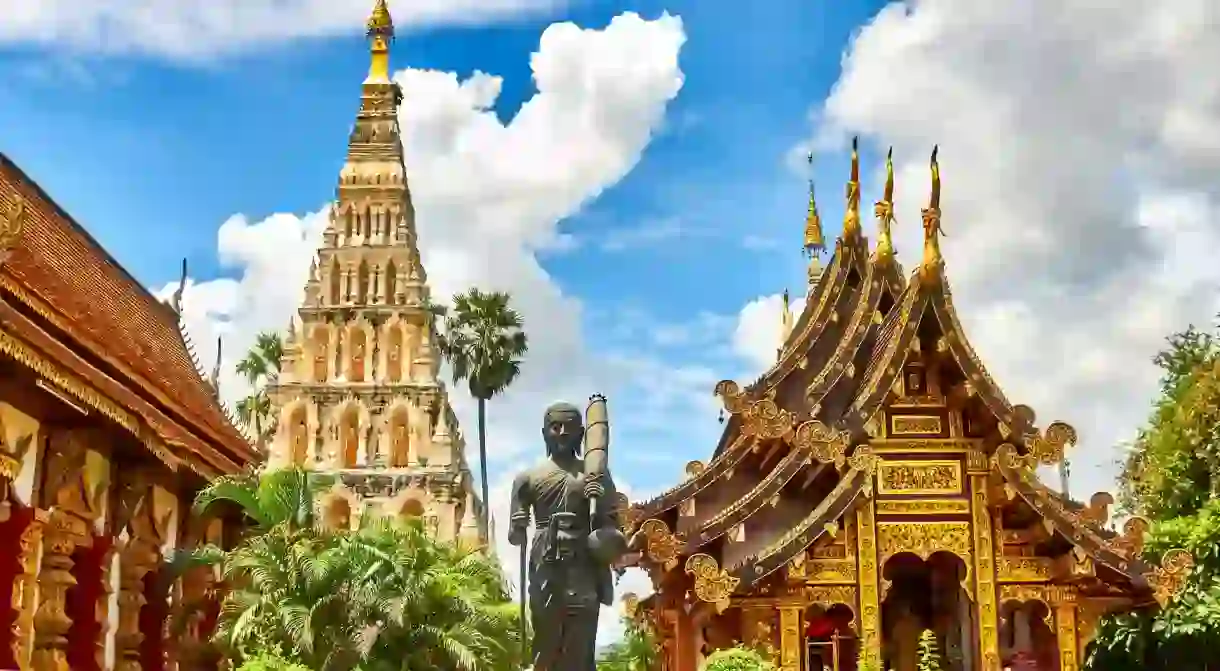13 Thai Slang Words to Help You Speak Like a Local

Struggling to understand everyday language in Thailand? Here are some commonly used slang words and colloquialisms in the Land of Smiles. Remember, the incorrect use of slang can cause offence. Tread carefully and, if in doubt, don’t use it.

จ๊าบ (Jaap) / Cool
Something that is jaap is cool, awesome or pretty great. It’s used to show appreciation and admiration and is mainly used by younger Thai people.
กู (Goo) / I
Goo is an informal word for I. Unlike the standard words of pomme (male) and chan (female), goo can be used by people of any gender. It is heard among close friends, but shouldn’t be used with anyone else.
มึง (Meung) / You
As goo is the informal word for referring to oneself, meung is the casual way to refer to another person. Similarly, it is only used with close friends and in an informal setting.
กิ๊ก (Gig) / Lover
A gig is a person’s casual lover and can be used to refer to both men and women. A close English equivalent would perhaps be the term “friends with benefits”.
เจ้าชู้ (Jaow Chew) / Playboy
A jaow chew is a playboy. Depending on the context, it can be used in a playful and jokey manner or (more rarely) as an insult.
ควาย (Kwai) / Buffalo
Kwai is the Thai word for buffalo. Depending on the context, it can also be used as a term that’s somewhat akin to imbecile.
เด็กแนว (Dek Naew) / Hip Young Person
A dek naew is a young person who needs to keep up with all the latest trends. They will likely be wearing the newest fashions, have the most recent mobile phone and do anything to appear cool.
ติ๊งต๊อง (Ting Tong) / Mad
Ting tong is typically used to indicate that someone is perceived as being a bit wacky, unusual or eccentric.
ภาษาดอกไม้ (Pa-Sa Dok Mai) / Flower Language
Pa-sa dok mai literally translates as flower language. If somebody is speaking pa-sa dok mai, they are using tender and poetic words of love.
ไฮโซ (High So) / High Society
Taken from the English phrase high society, high so is used in Thai when talking about a wealthy person or a person with an affluent background.

เม้าท์มอย (Mao Moi) / To Gossip
Mao moi is a slang verb for gossiping or talking behind someone’s back. The first part of the phrase comes from the English word for mouth.
ตังค์ (Tang) / Money
Tang is an everyday slang term for money. It is derived from the word satang, a unit of Thai currency. While many people know that Thailand uses the Thai baht, you may not know that one baht is further split into 100 satangs. Satangs are rare today because of their low value, and many shops will not accept such small coins.
จ๋อย (Joy) / Sad
Being filled with joy in the Land of Smiles isn’t as great as it sounds; joy is the Thai slang word for sad. It goes beyond simply feeling a bit gloomy, and usually implies an element of sorrow, despair or feeling despondent.
Feel like you are ready to visit Thailand now? Then check out these amazing tours.
Best Trips and Tours in Thailand
Natural Feature

Thailand is one of the most popular destinations for tourists from all over the world – and for good reason. Its picture-perfect beaches, bustling cities and peaceful temples make it a haven of discovery for anyone looking for something new and unique from their travels, while its own amazing and diverse cuisine is equally as enticing. Here are some of the best ways to get to know this magnificent and special country.













